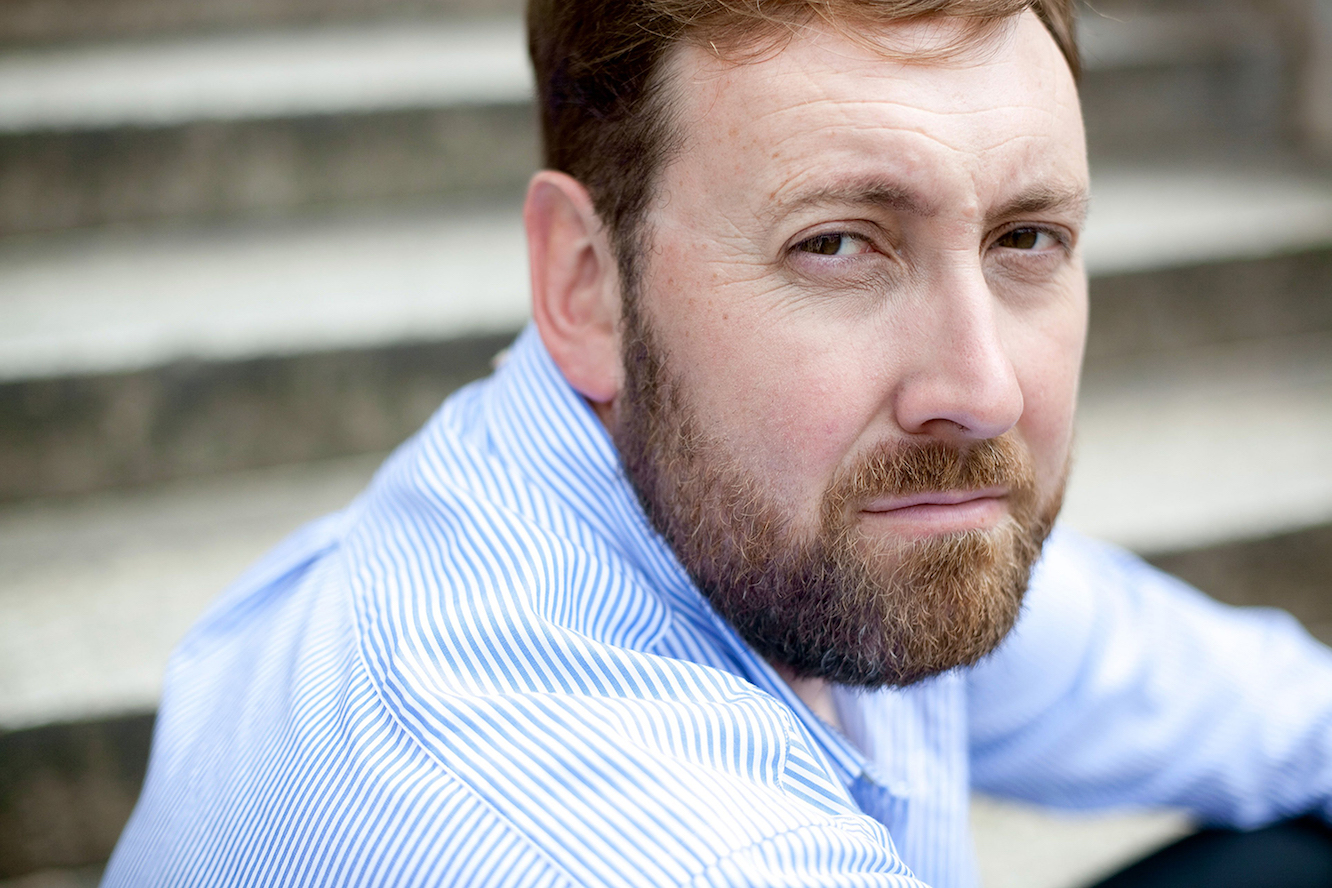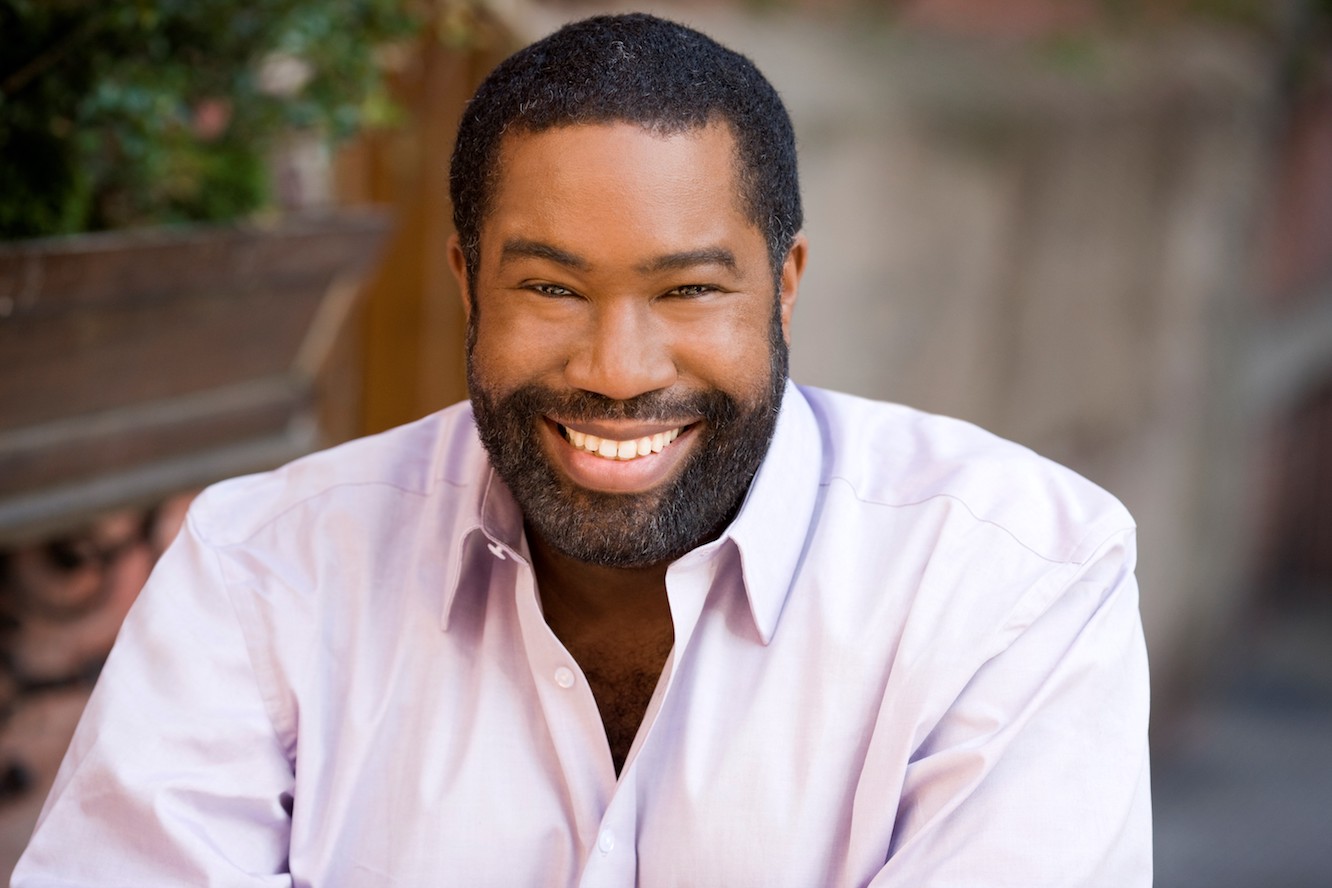Soprano Lisette Oropesa has been lighting up the great stages of the world for the last 10 years. The Cuban-American soprano is currently working her magic at the Royal Opera House, singing the title role in Donizetti’s Lucia di Lammermoor, but that’s only one of the many exciting productions she is a part of this season. I feel very fortunate that Lisette was willing to take some time to talk with me about her background, upcoming engagements, and love of opera.
You are currently in the middle of a fantastic run of Donizetti’s Lucia di Lammermoor at the Royal Opera House. I have read nothing but rave reviews – brava! This is not your first time playing Lucia. How is this production different from others you’ve been in? What makes it unique or particularly powerful?
Thank you so much for the kind words. It’s been quite a wonderful experience. The biggest challenge is the fact that I’m onstage 100% of the time as Lucia. The set is a split screen, and there is always some action going on on both sides of the stage. This makes for a lot more work for all the characters to do; no time in our dressing rooms to sit and prepare for the next scene we have to sing. It’s something that took some practice getting used to, and the rehearsal process was very tiring. But I think I have learned a lot by this approach and am happy to say that I feel more in tune with the character presented this way.
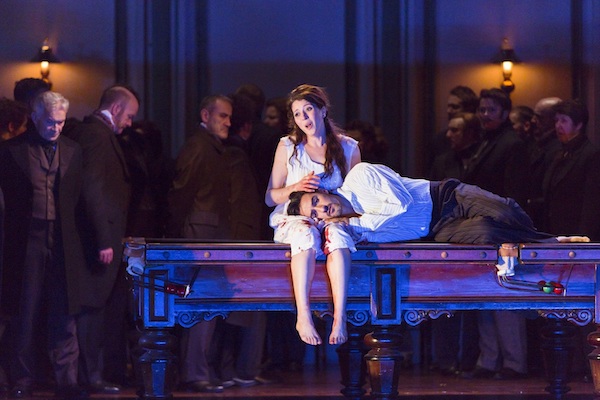
Lisette Oropesa as Lucia at Royal Opera House
Photo credit: Stephen Cummiske
Has your interpretation of the famous ‘mad scene,’ Il dolce suono, changed over time?
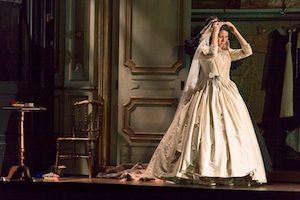
Lisette Oropesa as Lucia at Royal Opera House
Photo credit: Stephen Cummiske
In some ways, yes, but I really haven’t gone too outside the box with the musical tradition of the scene. The cadenza, for example, is the traditional one. Perhaps with a few more years experience I may try another cadenza. For the moment I can say, however, that the staging always changes a singer’s interpretation. In this concept, my character has not only committed murder, but also just had a miscarriage and is in a very particular state of mind. This affects the meaning behind a lot of the text, the color of the sound in some places, and what some of the cadenzas mean; sometimes they are spasms of pain, others anger and disbelief, while at other times, the character is 100% aware of what is going on around her. It varies.
In December, you’re going to be returning to the Met as Gretel in Humperdinck’s Hansel and Gretel. I understand that this is a role debut for you. I’ve always wondered about opera singers’ timelines: your run in Lucia ends at the end of November, and you’re on stage at the Met in the middle of December. Surely you can’t learn and master all the music for a new role in a couple weeks between productions, so how does the timeline work? When do you begin working on new roles, and how do you go about learning them?
I began working on this role over the summer. I try to get a head start on new roles, at least 4-5 months. It takes a long time to get a piece ingrained into your head and voice. Plus I knew that this fall I would be consumed with work on Lucia and might not have much energy to devote to practicing something else. So I try my best to stay on top of that.
I do think being a Latin person gives you a particular way of expressing yourself; by nature we tend to be outspoken people, vivacious and happy, and this has perhaps given my personality a dynamic that lends itself to performance.
After Hansel and Gretel, you are going to be playing Konstanze in Mozart’s Die Entführung aus dem Serail in Bayerische Staatsoper. You have performed this role many times at this house; in fact, you’ve done it every years since 2014. Obviously they keep asking you to come back for a reason. What do you think that reason is?
I feel very privileged to have this opportunity year after year. I don’t know what the exact reason is, but I do think that knowing the production when the rehearsal process is quite short has its advantages.
What is one role you feel particularly close to? Why are you so attracted or connected to this role?
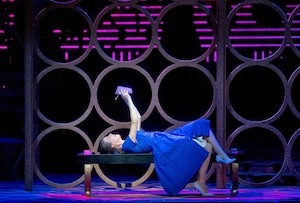
Lisette Oropesa as Gilda
Photo credit: Cory Weaver
I feel close to Gilda. My dad had a lot in common with Rigoletto. He was handicapped, he was mischievous, he liked to make people laugh, and he had a lot of pain and sadness inside. But he loved his daughters very much and was very protective. Some of the text in the opera is straight out of a discussion with my dad from when I was a teenager.
Is there one engagement this season that you’re especially looking forward to for some reason?
Besides Lucia at Covent Garden??? Actually I am excited about all of them… Hansel and Gretel at the Met is a dream because it is a gorgeous opera and a really fun role, and the holidays in NYC are unlike any other. I’m also looking forward to Los Angeles later in the season, and then revisiting Lucia in Madrid. I can’t pick a favorite!
You are a first generation Cuban American. Has your background – being the child of immigrants – influenced your career in any way? Has it informed your interpretation of any of the roles you’ve played?
It has made me bilingual since childhood and this has given me enormous advantages when it came to learning languages. There was also music and a tightly knit family life at home, which of course I know I was lucky to have. Also, having grown up in a modest home with financial difficulties, it gave me perspective about life, about the appreciation of the opportunities I was given just by being in the United States, it made me grateful for everything I ever had. I do think being a Latin person gives you a particular way of expressing yourself; by nature we tend to be outspoken people, vivacious and happy, and this has perhaps given my personality a dynamic that lends itself to performance.
We love to hike and go on scenic drives (if we have the opportunity) because the world is so beautiful!
I understand that you’re a runner. Do you run everyday? Do you do marathons? Do you listen to opera when you run?
I do run, not every single day, but about 4-5 days a week, depending on my schedule. It is one of the most important parts of my life, because it just brings me so much joy. I have done six marathons and several half marathons as well. I don’t listen to music when I run, I use the time as a moving meditation or to chat with my husband, Steven, who runs with me! We try to solve the world’s problems.
You’re extremely busy, but where could we find you on an off night? How do you like to spend your free time?
My husband and I enjoy spending time together, especially outdoors. We love to hike and go on scenic drives (if we have the opportunity) because the world is so beautiful! Of course, we run too! We also enjoy cooking and do quite a bit of that as well. I find it relaxing. We try to go to the opera too, particularly if one of my friends is singing.
To finish, I’d like to ask a question I ask everyone: what is it about opera that touches your soul?
Opera has the ability to move people, and bring them into a world of divine music and feeling. It is such a special art form; it’s a celebration of the miracle of the human voice.

